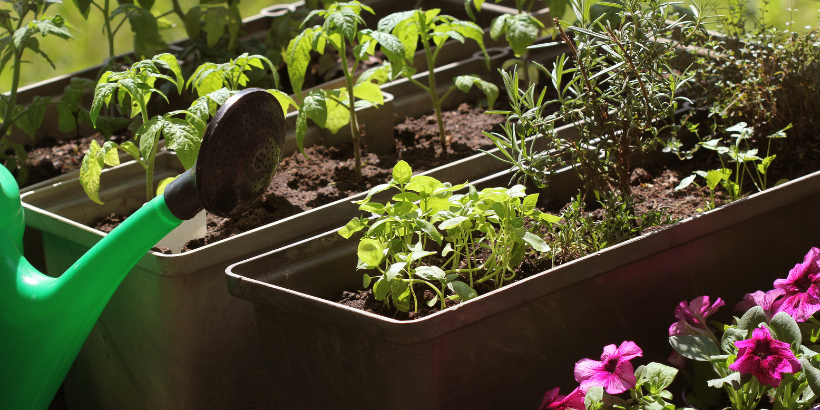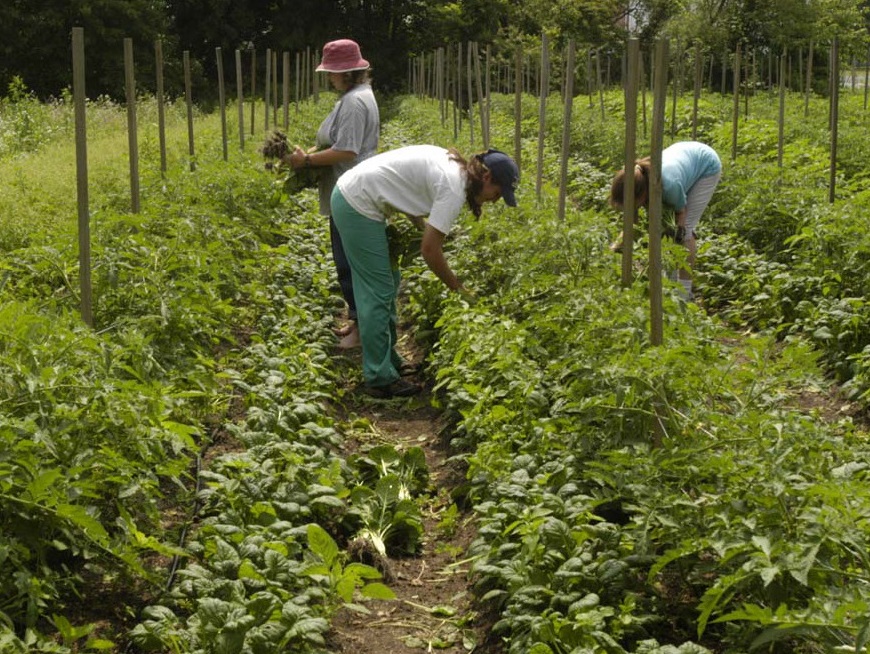Top Gardening Techniques to Increase Plant Growth and Health
Top Gardening Techniques to Increase Plant Growth and Health
Blog Article
Opening the Advantages of Horticulture: An In-depth Check Out the Various Kinds and Their Effect On Well-Being
Checking out the diverse advantages of horticulture reveals a spectrum of techniques that significantly improve individual well-being. As we analyze these diverse horticulture strategies, it ends up being noticeable that their impact can reverberate on personal, social, and ecological degrees, triggering a better look at how these connections form a natural story of all natural health.
Kinds Of Gardening

Blossom horticulture, an additional popular category, highlights the aesthetic charm of grown blossoms. This type can boost landscapes and advertise biodiversity by drawing in helpful pollinators. Herb horticulture includes growing fragrant and culinary plants, contributing both to cooking and all-natural solutions.
Container gardening offers flexibility, allowing people with restricted area to involve in horticulture by utilizing pots and planters. This technique is especially popular in metropolitan settings. Increased bed gardening, on the other hand, entails developing raised plots that improve dirt drain and access, making it much easier for garden enthusiasts to manage their plants.
Finally, neighborhood horticulture promotes cooperation amongst individuals in shared areas, advertising social communication and cumulative responsibility. Each kind of gardening serves distinctive functions and satisfies various choices, making gardening a flexible task that can be customized to specific requirements and atmospheres.
Mental Wellness Advantages
Engaging in different kinds of horticulture not only generates substantial rewards such as fresh produce and stunning flowers but also provides considerable mental health and wellness benefits. Research suggests that gardening can be an effective device for minimizing tension, anxiety, and clinical depression. The act of often tending to plants and cultivating a garden fosters a feeling of objective and accomplishment, which can boost total emotional well-being.
Furthermore, horticulture urges mindfulness, as it calls for individuals to concentrate on the here and now minute, whether it be planting seeds or nurturing growth. This mindfulness method can lead to lowered rumination and boosted mood stability. The exposure to native environments throughout horticulture has likewise been linked to improved cognitive operating and reduced sensations of exhaustion.
Social communication plays a vital role in mental health, and area horticulture campaigns supply opportunities for people to attach with others, fostering a feeling of belonging. The common experience of gardening can cultivate friendships and assistance networks, even more bolstering psychological strength.
Physical Wellness Advantages
Many people might not recognize that horticulture additionally provides significant physical health benefits. Participating in horticulture activities calls for a variety of physical movements, including flexing, lifting, digging, and growing, which jointly add to improved toughness, versatility, and endurance. These actions can boost cardio wellness by advertising a pop over to this site raised heart price, therefore decreasing the risk of cardiovascular disease.
In addition, horticulture can act as a moderate-intensity workout, aiding people accomplish advised physical task degrees. Researches indicate that routine involvement in horticulture can burn significant calories-- approximately 200-400 calories per hour, depending on the intensity of the jobs carried out. Such calorie expense is useful for weight administration and overall metabolic health and wellness.
Additionally, exposure to find sunlight throughout gardening can assist in the synthesis of vitamin D, which plays a vital role in keeping bone health and supporting immune function. The act of gardening often entails working with soil, which has been linked to possible psychological and physical health benefits due to the visibility of helpful microorganisms.
Social Connections Through Horticulture
The common aspects of gardening foster significant social links amongst people. Neighborhood gardens, particularly, work as lively hubs where people from diverse histories come with each other, cultivating not only plants but also partnerships. These common rooms motivate collaboration, enabling individuals to exchange expertise, skills, and resources, consequently improving their gardening experience and cultivating a feeling of belonging.
Engagement in gardening tasks frequently causes the formation of friendships and assistance networks. Individuals regularly join for usual goals, such as planting periods, harvest parties, or instructional workshops, which enhance interpersonal connections and develop a feeling of neighborhood. Such communications can relieve feelings of isolation and improve psychological wellness, as people discover friendship and friendship in shared ventures.

Ecological Impact of Gardening
Horticulture substantially adds to environmental sustainability in numerous ways. Among the most remarkable benefits go to website is the enhancement of biodiversity. Home gardens provide essential habitats for various varieties, consisting of pollinators such as bees and butterflies, which are essential for community wellness. By growing varied plant types, gardeners can produce a balanced environment that supports both plants and fauna.

Moreover, yards play a vital role in water conservation. Tactical landscapes, consisting of indigenous plants and xeriscaping, reduce water use and stop runoff, thereby protecting regional waterways from contamination.
Conclusion

Finally, gardening functions as a multifaceted task that enhances health across numerous domains. The diverse types of gardening-- including vegetable, blossom, herb, container, and elevated bed-- add to psychological and physical health and wellness, foster social links, and advertise environmental sustainability. By taking part in horticulture practices, people can experience better lifestyle while also supporting neighborhood bonds and environmental health. Inevitably, the holistic benefits of gardening highlight its importance as an essential component in enhancing general health.
Report this page